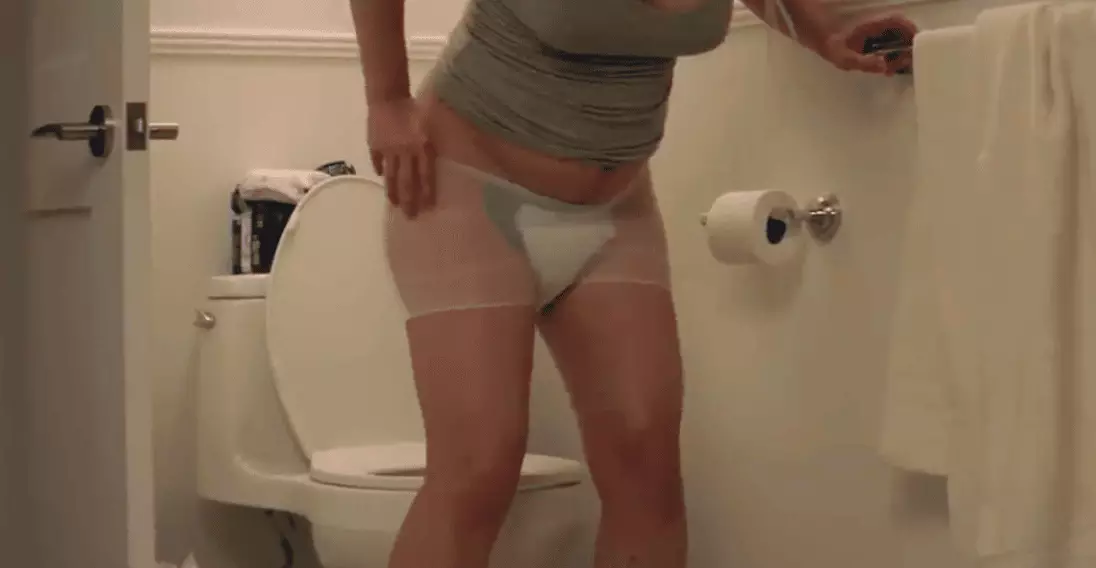In contemporary culture, certain televised events create a platform that goes beyond entertainment; they act as a stage for shared experiences and societal narratives. The Super Bowl and the Academy Awards are two such events where ads have become as iconic and culturally relevant as the shows themselves. Millions tune in, not just for glitzy presentations and celebrity appearances, but also for the commercials that interlard the broadcasts. Yet when it comes to portraying authentic maternal experiences, as demonstrated by Frida Mom’s recent commercial rejection by ABC for the Oscars, a critical gap in representation emerges.
Frida Mom, a brand dedicated to aiding women in their postpartum recovery, produced a commercial that ambitiously sought to reveal the raw truths of motherhood. The ad opens with the sounds of a newborn and follows a new mother grappling with the aftermath of childbirth—from battling physical discomfort to navigating the less glamorous aspects of postpartum hygiene. In a world where mothers often feel pressured to embody an ideal of perpetual resilience, the ad’s candidness shed light on an experience often shrouded in silence. Yet, the Oscars, an event celebrated for its glamour and artistry, deemed this portrayal “too graphic.”
Chelsea Hirschhorn, CEO of Frida Mom, articulates that their mission is to demystify the postpartum journey, transforming what could otherwise be a daunting experience into one marked by confidence and preparation. According to Hirschhorn, the goal was not merely to market products, but to fundamentally shift the narrative surrounding motherhood. With subtle but impactful messaging, the brand aimed to equip women with knowledge and resources, advocating the importance of mental and physical healing during a notoriously challenging period.
By rejecting the ad, ABC inadvertently perpetuates a long-standing silence surrounding postpartum recovery—one that fails to consider the complexities of motherhood. While past Oscars have celebrated commercials that discuss birth—albeit in sanitized and indirect terms—Frida Mom’s portrayal of the stark physical reality of recovery struck too close to home. Instead of fostering a conversation about real experiences, the network chose to uphold an image that prioritizes aesthetic over authenticity.
This disparity raises broader questions about cultural perceptions of motherhood in media and advertising. The rejection of an honest representation speaks volumes about societal discomfort with vulnerability, particularly when it comes to women’s experiences. Historical contexts have taught us that many topics surrounding women’s health—especially those regarding childbirth—are often hushed, reinforcing a stigma wherein mothers are expected to present a façade of effortless grace. The inadequacies in this expectation can be detrimental to maternal well-being, undermining recovery and contributing to a culture that pressures new mothers to return to their routines prematurely.
Diana Spalding, a certified midwife and expert on maternal health, poignantly argues against the unrealistic expectations placed upon new mothers, asking why we maintain such a harsh standard for women post-birth. The physiological realities of childbirth—whether through vaginal delivery or C-section—are significant and demanding, requiring ample time for healing. Yet, in a society that venerates productivity and efficiency, new mothers can find themselves subjected to rapid returns to normalcy—often at the expense of their health and emotional well-being.
As the conversation about motherhood and postpartum healing continues to evolve, it becomes imperative for media platforms, advertisers, and viewers alike to advocate for more comprehensive storytelling. The rejection of Frida Mom’s commercial is not merely a setback; it is a reflection of the ongoing struggle to confront and normalize the realities of motherhood. The conversation must encompass discussions about the emotional and physical commitments mothers face, as well as the societal structures that can hinder their recovery.
While it is ABC and the Academy Awards’ prerogative to curate their commercial content, the broader cultural implications call for a reassessment of what is deemed “acceptable.” The realities captured in Frida Mom’s ad resonate not just with mothers but with all individuals who care about fostering an inclusive understanding of maternal experiences. By standing firm against the sensationalized narratives often represented in mainstream media, Frida Mom invites us to participate in a necessary dialogue about support, healing, and empowerment for mothers everywhere.
Let the rejection of this ad propel us toward a future where authenticity is celebrated, and the complex journey of postpartum recovery is not glossed over but embraced. It’s time to confront the realities that new mothers face and ensure that such discussions are foregrounded—both in media and in our collective consciousness.

